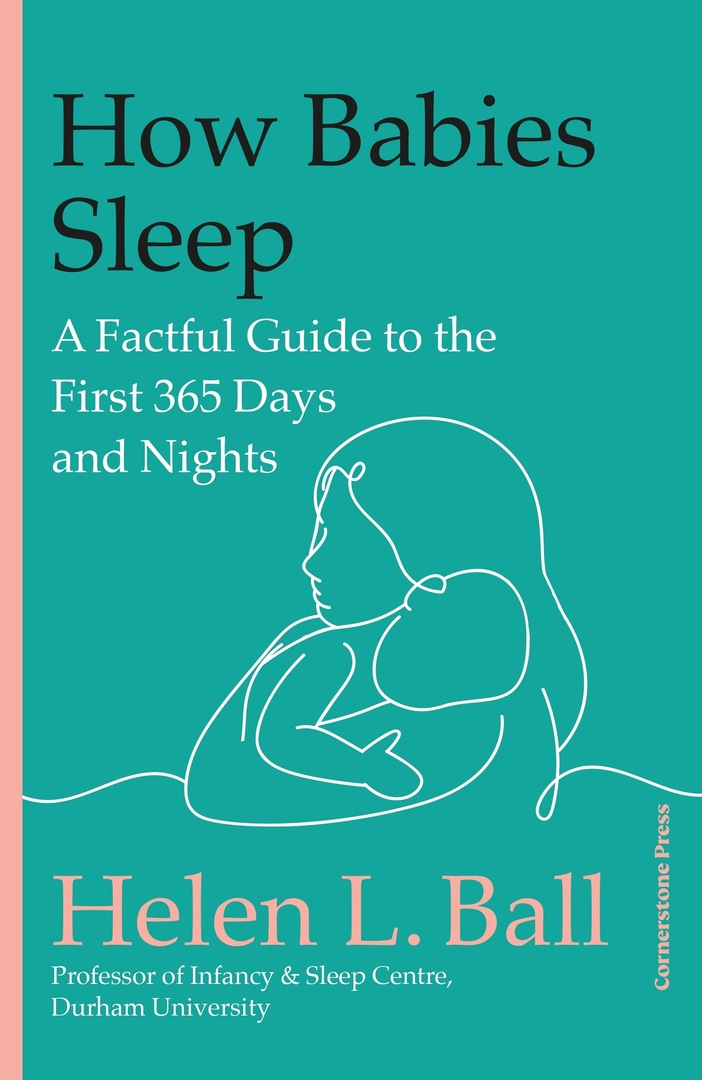Understanding Baby Sleep: When Can You Expect Your Infant to Sleep Through the Night?
As the head of the Infancy and Sleep Centre at Durham University and a seasoned anthropology professor, I have dedicated over 30 years to studying the sleep patterns of parents and infants. My research has involved recording countless sleeping babies and their guardians in various environments including homes, laboratories, and local postnatal wards.
In my work alongside collaborators from around the globe including the US, Australia, Japan, Mexico, Germany, and Guatemala, we have engaged with diverse family backgrounds through surveys, interviews, and focus groups across the northeast of England, Glasgow, Bradford, and Leicester. Together, we have produced over 150 research articles and book chapters.
My studies as a biologist and anthropologist focus on the impacts of our evolutionary history on sleep biology and behavior, how societal changes shape beliefs about infant sleep, and how insights into infant sleep can help parents navigate myths surrounding the topic.
Infant sleep patterns are simultaneously straightforward and intricate. On one hand, they are easily comprehensible, based on basic biological principles applicable to all infants; on the other hand, cultural and societal factors complicate our understanding.
Should I Establish a Bedtime for My Infant?
In the initial months, a regular bedtime is not necessary. Infants will experience sleep throughout the day and night, so parents can rest with their baby during evening hours and transfer them to their designated sleep area right before their own bedtime. As babies begin to consolidate their sleep into longer night segments around three months, they will generally sleep longest at the start of the night. Synchronizing your sleep cycle with your baby’s can facilitate managing wake-ups later in the night. It’s less jarring to awaken from REM or light sleep than from deep sleep. Further along, adopting a set bedtime becomes more sensible, but try not to schedule it too early to take advantage of their initial longer sleep periods.
What If My Baby Refuses to Sleep?
If you have ensured that discomfort is not an issue, a potential reason your baby may struggle to fall asleep could be their inability to do so on cue. Just like adults, infants can’t fall asleep instantaneously. The phenomenon known as sleep pressure—feeling unable to keep one’s eyes open—is caused by the accumulation of a chemical called adenosine in the brain. This substance builds up while awake and is cleared out during sleep.
Both infants and adults require sufficient sleep pressure to drift off. If your baby isn’t ready for sleep, engaging them in stimulating activities like a stroll outside or playful interactions may help them accumulate the necessary sleep pressure for a smooth transition to sleep.
Is the ‘Drowsy but Awake’ Technique Effective?
Parents often hear the advice to place babies in their crib “drowsy but awake,” but this can sometimes prove ineffective. The reasoning is that the baby who learns to fall asleep in their crib will more likely be able to settle themselves back to sleep upon waking at night compared to a baby who falls asleep during feeding. While there is some logic to this advice, it does not fully align with how infant sleep biology works. As sleep pressure builds, infants may feel drowsy during feedings since breastfeeding can induce sleepiness, and their parents’ embrace offers a comforting environment.
If your baby is content to be drowsy and stays awake long enough for you to lay them down, you may want to try this strategy, but don’t stress if they fall asleep before being placed in the crib.
Why Does My Baby Wake up When I Try to Lay Them Down?
Newborns transition into deeper sleep gradually rather than quickly like adults. Initially, they will be in active sleep before moving into a more tranquil phase, which can take 20 to 30 minutes. During this time, they are quite sensitive to being disturbed. For the first few months, if you attempt to place them down before they are in a deeper sleep, they may rouse easily. Ideally, wait until they are in a quiet sleep state, characterized by rhythmic breathing and a relaxed body, before shifting them.
Strategies for When Your Baby is Overtired
When a child is very tired but unable to soothe themselves in a stimulating environment, they may be classified as “overtired.” Similar to adults, external stressors can hamper their ability to sleep, even when sleep pressure is high. Helping them to settle can involve physical comforting methods like cuddling or rocking. Addressing the factors that block their sleep pressure, such as excessive excitement or anxiety, can assist in calming them down effectively.
When Can I Expect My Baby to Sleep Through the Night?
Research indicates that sleep development in infants is highly individual and varies across the first year. It is often unpredictable when an infant will start sleeping through the night. Studies with video monitoring show that while sleep durations do lengthen over time, it remains common for babies to wake throughout the night in their first year. A particular study involving 100 four-week and three-month-old babies found that only about one-quarter managed to self-soothe back to sleep without parental assistance during night wakings.

It’s crucial to acknowledge that sleep behaviors can differ significantly even among siblings within the same family. Many parents share experiences where their first child slept soundly at a young age, only to face a vastly different scenario with their second child, who would awaken frequently during the initial year. The sleep and care environments may be the same, but each infant may have different temperaments and needs.
Is There a Difference in Sleep Patterns Between Formula-Fed and Breastfed Babies?
Recent findings in 2023, which analyzed data from 35 studies, revealed that while breastfeeding parents and their babies typically wake more frequently at night compared to those using formula, there is no significant difference in total sleep duration or the nightly awake time.
Both breastfeeding and formula-feeding produced similar overall sleep patterns and maternal sleep quality. This might seem counterintuitive, but it could be due to breastfeeding leading to quicker return-to-sleep times compared to formula-feeding, which often requires preparing a bottle at night.
Breastfeeding also releases the hormones oxytocin and prolactin, which aid relaxation and drowsiness, enabling both mother and baby to resettle to sleep more effectively.
Will Extra Milk or Solids Help My Baby Sleep Better?
The concept of helping babies to “sleep better” can be complex. In early infancy, where frequent awakenings are the norm and circadian rhythms are not yet established, sleeping better might mean fewer nighttime interruptions for parents. However, introducing formula or solids at bedtime to resolve sleep disturbances can pose risks, such as increasing the likelihood of sudden infant death syndrome (SIDS) and potentially impeding breastfeeding.
Young infants usually spend a significant amount of time in lighter sleep stages essential for their brain development, so fostering longer or deeper sleep isn’t inherently beneficial. According to a 2015 study, there was no correlation between the introduction of solids and night-waking—more milk or solids during the day correlated with fewer nighttime feeds, but not fewer awakenings.
What About the Notion of a Four-Month Sleep Regression?
The idea of sleep regressions likely stems from observations that some babies sleep more soundly at three months before resuming night awakenings. This may be linked to “developmental leaps” that increase active sleep as a baby’s brain adapts to new skills. However, the concept of a universal sleep regression is not scientifically supported, and these patterns do not occur in a consistent manner across all infants.
Recognizing that sleep development follows a non-linear path is crucial—night wakings and sleep duration can fluctuate dramatically throughout the first year, resembling a rollercoaster rather than adhering to a strict schedule.
Is It True That I Should Never Wake a Sleeping Baby?
The saying, “never wake a sleeping baby,” reflects a cultural belief where quieter babies are deemed “good.” However, prolonged sleep waves are not the normal state for infants, and parents should be cautious about babies who sleep for extended periods without waking. After birth, drowsy babies may need to be woken for regular feedings if they are not waking on their own.
Once they develop consistent day-night rhythms and sleep begins to consolidate, reducing daytime naps can help build up enough sleep pressure for nighttime rest without the need to wake them actively.
Should I Consider the ‘Cry It Out’ Method?
The “cry it out” approach involves leaving an infant to cry until they eventually fall asleep alone, often with the intent to teach them self-soothing. This method is seen as one of the harshest sleep-training techniques, involving no comfort for the child and not allowing a gentle transition process.
This practice is discouraged for infants under six months, as night feeds are still necessary and sleeping alone increases SIDS risks at this age. Even between six and twelve months, this technique is not recommended due to infants’ lack of understanding of object permanence, leading to feelings of abandonment. Given their high dependency during this stage of life, finding gentler methods of establishing sleep routines is more appropriate.

Understanding infant sleep is essential for new parents navigating these early months—a subject intricately explored in the work of Professor Helen L. Ball.




Post Comment